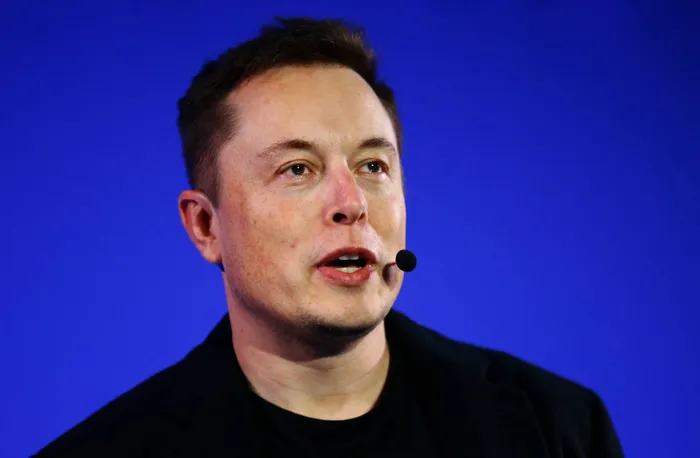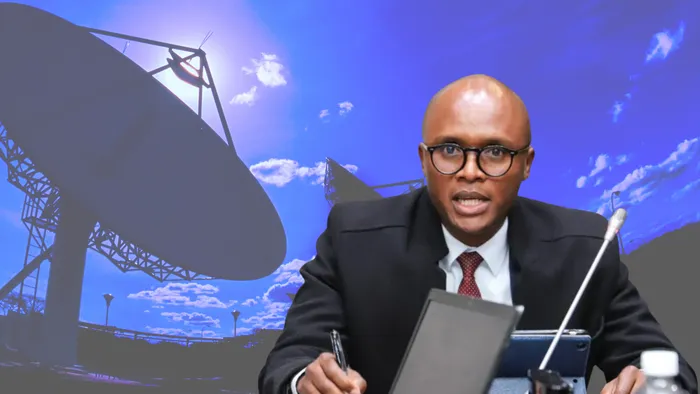Cosatu, BBC slam Elon Musk's R2 billion investment plan to avoid BEE

Cosatu has slammed Minister Solly Malatsi’s attempt to bypass South Africa’s 30% local ownership law, purportedly for Elon Musk’s Starlink.
Image: AP Photo/Francois Mori
The Congress of South African Trade Unions (Cosatu) has expressed concerns over the proposed policy direction on equity equivalent investment programmes (EEIPs) in the Information and Communications Technology (ICT) sector.
Communications and Digital Technologies minister Solly Malatsi gazetted a policy direction on the role of EEIPs in the ICT sector, aiming to provide policy certainty and attract investment.
The policy direction allows companies to meet empowerment obligations through alternatives to 30% ownership, such as investing in local suppliers, enterprise development, and job creation according to Malatsi.
However, Cosatu spokesperson Matthew Parks, said the Broad-Based Black Economic Empowerment (BBBEE) Act provides two options for investors that include a 30% shareholder option or an equity equivalent option.
The trade federation giant believes that the BBBEE Act is inclusive and provides accommodating options for all investors and not only for the wealthy.
The federation is concerned that the proposed policy direction might allow companies like Starlink to bypass BBBEE requirements.
"It's critical that Starlink, like all other investors, comply with the BBBEE Act, whether it is the shareholder or equity equivalent option," Parks emphasised.
The BBBEE Act requires companies to offer 30% shareholding opportunities to historically disadvantaged individuals or offer equity equivalents, such as supporting local manufacturers, creating jobs, upgrading worker skills, or investing in local communities.
Parks cited examples of companies like IBM and Microsoft that have utilised the equity equivalent option.
Cosatu argues that exempting one company from BBBEE requirements would be unfair.
"It would not be sustainable to exempt one company as this would be unfair to other companies and undermine the law," Parks said.
Cosatu proposes that the government ensures BBBEE reaches those who most need empowerment, namely workers and working-class communities.
The federation advocates for worker empowerment through Employee Shareholder Ownership Programmes and support for locally produced goods.
The Black Business Council's (BBC) spokesperson Masedi Sesele also shut down the idea saying it would be “bending of legislation” to accommodate an individual or company.
“Legislation is there for all to comply with, no exception. Otherwise, the country will become lawless…The BBBEE legislation together with the Codes of Good Practice prescribes that any company wanting to do business in South Africa should implement all the elements of the BBBEE codes being ownership, management control, skills development, enterprise and supplier development, and socio-economic development. We don’t know how the rumoured R2 billion is going to implement those important elements.
“Anyone who wants to invest in any country must comply with the ownership legislation of that country. This is happening worldwide and is not unique to SA. So BBBEE regulations should never be exempt. Black people, who constitute 97% of the population and own only 3% of the economy, can’t continue to be sidelined in the name of foreign investments,” said Sesele.
Malatsi through his spokesperson Kwena Moloto said that the policy direction sought to provide the “much-needed” policy certainty to attract investment into the Information and Communication Technologies (ICT) sector, and specifically with regards to licensing for broadcasters, internet service providers, mobile networks, or fixed and mobile networks.

Communications and Digital Technologies Minister Solly Malatsi defends ICT policy, denies special treatment for Starlink, and stresses the need to align sector regulations with transformation laws through equity equivalent investment options.
Image: X/IOLGraphics
Moloto, on Thursday, saidthat Starlink was not the only company being considered.
Starlink, owned by Elon Musk, reportedly plans to launch its services in South Africa ahead of the G20 conference.
However, the company intends to bypass the BBBEE law and its 30% ownership requirement, preferring instead to go the Equity Equivalent Investment Programme route where they have offered to invest R2 billion.
Political parties such as the EFF, the African Transformation Movement (ATM) and the uMkhonto weSizwe Party (MKP) have been opposed to the proposed changes, citing concerns about Starlink's compliance with BBBEE laws.
Political analyst Professor Sipho Seepe criticised the government and president Cyril Ramaphosa for “forging ahead” with allowing Starlink to operate in South Africa, saying it would set the wrong precedent..
“The imbroglio regarding Starlink is further proof that South Africa is up for sale under the Ramaphosa administration. This is what you should expect when you have a prepaid presidency.
“Every penny given to support his presidential candidacy was a future investment to ensure that the South African government would succumb to business demands…The very fact that the Ramaphosa regime is willing to suspend legislation and regulations for pieces of silver is not only shameful but also points to a lack of conviction and commitment by the ANC elites...Succumbing to the demands of Starlink would set the wrong precedent and open the floodgates by like-minded business people,” Seepe said.